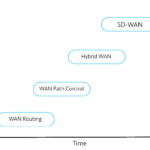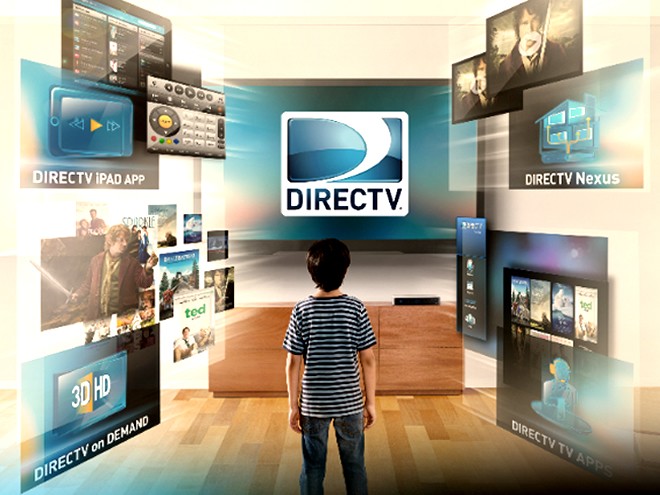It may not be today, or even this year. But eventually, you are going to buy another television. Presumably, the television you buy will be better than the one you currently have. The question is, in what way? There are so many specs that no one really understands, and that may not make much of a difference in the end. How are we to know which bullet points on a sales sticker matter, and which ones don’t? There are answers beyond the tech specs and professional reviews.
Here are a few things to look for in your next TV:
Something that’s Right for Your Favorite Content
If you live and breathe sports, it won’t do you any good to have an extensive sports package without a TV that can really take advantage of that content. Hi-def channels need to be played on a hi-resolution screen. Otherwise you are not seeing all of what you are paying for. Not all companies offer as much sports content in high-def as others. It is a very important point for sports fans to consider. Check your availability for a comprehensive football package at http://www.direct-ticket.net/directv/south-dakota/h/directv-hot-springs/.
If you are already getting this kind of content, you need a TV that can show it. The same is true if you like to watch a lot of Blue-rays and 3D movies. If you are just going to buy another standard def, or even 720p screen, you are wasting your money on the media you are purchasing. Don’t downgrade your media. Upgrade your television to something that is designed to get the most out of the content you pour into it.
Something that Better Fits Your Space
Though many a TV sales person will disagree, there really is such a thing as too large a screen. Lifehacker provides a formula. They point out that there is quite a bit of variance even within the formula. You take your viewing distance in inches, and divide it by 1.5, or 2.5, or as they did, some arbitrary number between the two. At 7” viewing distance, the right sized TV is either 33.6”, 42”, or 56”. With such a wide range, the formula is kind of useless.
A better metric is your vision, and your available space. Regardless of what any formula says, if you don’t have space for a big TV, don’t get a big TV. If you will be sitting 7’ away, go to a store with a tape measure, and look at the TV’s from 7’ away. At that distance, get the one that looks best to you. This will vary based on eyesight and TV quality. No formula can predict those factors.
A TV with the Right Connections
One of the most important questions you can ask before purchasing a TV is, what devices will you be plugging into it. The best TV in all other respects is useless garbage if you don’t get this one right. Let’s see… You have a PS4, an Xbox, a set-top box from the cable company, possibly the rumored Apple TV supposedly coming this September, and you occasionally connect a laptop. You also might want an extra HDMI port for whatever comes next. That’s a lot of ports. You don’t want to get that TV home, only to discover that something has to be voted off the island.
The Worst TV
Finally, let’s talk about the worst TV you can buy. There is a line in “The Gambler” that says, “Every hand’s a winner. And every hand’s a loser.” That is also true for consumer electronics. This list of the best televisions you can buy should help you steer clear of the worst. But if the TV clashes with your decor and sense of style, it’s the wrong TV.
If the picture is calibrated to perfection, but your eyesight requires you to have a brighter screen and greater contrast, that’s what you need. The best TV may cost $700. But if your budget only allows for half that, then the best TV is the worst TV for you. This is why reviews will only get you so far. Buy the television that makes you happy. Anything short of that is the worst TV money can buy.

 Why Your Link Building Efforts Might Fail
Why Your Link Building Efforts Might Fail  How to Request or Give Remote Control in a FaceTime Call on iPhone
How to Request or Give Remote Control in a FaceTime Call on iPhone  The Rise of Intelligent Automation in Business Operations
The Rise of Intelligent Automation in Business Operations  The Best Ideas for Designing Your Custom Printed Ring Binder
The Best Ideas for Designing Your Custom Printed Ring Binder  How Technology is Changing the Way We Play Hearts
How Technology is Changing the Way We Play Hearts  The Rise of Open Source: A Journey to Innovation and Collaboration
The Rise of Open Source: A Journey to Innovation and Collaboration  How SD-WAN Is Revolutionizing Business Networks
How SD-WAN Is Revolutionizing Business Networks  Effective Digital Advertising Strategies for Modern Businesses
Effective Digital Advertising Strategies for Modern Businesses  Tips for Marketing Dental Packages: Easy Ways to Grow Your Reach
Tips for Marketing Dental Packages: Easy Ways to Grow Your Reach 